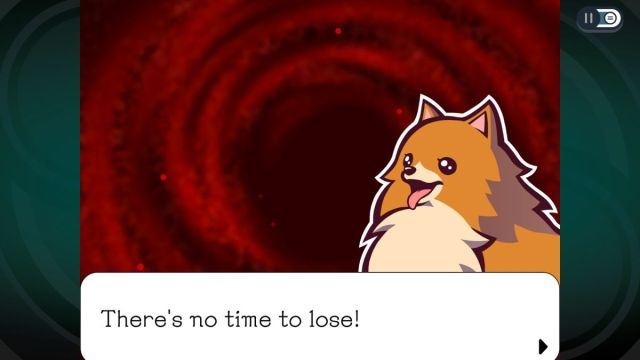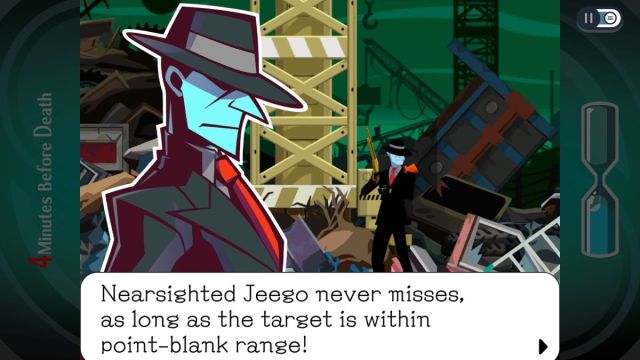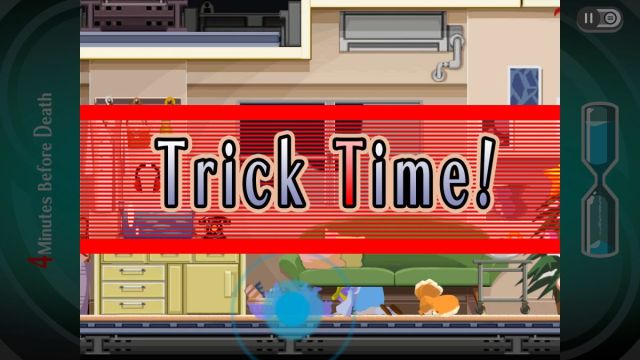One long night
2011’s Ghost Trick: Phantom Detective feels like it’s always been a bit of an oddball. The DS title was Ace Attorney director Shu Takumi’s shot to create something new, a “different kind of mystery” from the courtroom battles of Phoenix Wright and friends.
Though received well, sales seem mixed; it was a best-selling Nintendo DS game in Japan the week of its release, but Capcom would later note it struggled. All of this helped build, at least in my perception, a cult-classic vibe around it. It wasn’t the most popular DS game, but those in the know who dug the DS highly valued it.
So that’s where we find Ghost Trick now, as it’s getting a revival on modern consoles. A demo is currently available, containing the first two chapters. And alongside a chance to play that section a little early, we had the opportunity to chat with the development team behind the remaster. In correspondence with director Atsushi Maruyama, producer Shingo Izumi, and the original director Shu Takumi, we got to learn a little bit about how this all came about, what the challenges were, and what the team’s hopes are for this new version of a cult classic.
How did the pitch for a new Ghost Trick remaster come about? When did discussions first start, and what was the drive behind it?
Shingo Izumi: We are always discussing and considering what titles we can bring back. Within those discussions, I think talk of remastering Ghost Trick: Phantom Detective came about in the latter half of 2021. Ghost Trick: Phantom Detective is a title that many have requested to be remastered, and many who have played it rate it very highly. We really wanted to give those who haven’t been able to play it over these 13 years an opportunity to do so, and that was the reason we decided to re-release it. That’s also the reason we are releasing the game on multiple platforms and have also added additional languages. 13 years have passed since Ghost Trick: Phantom Detective originally released, but it retains a universal appeal regardless of your age, country, or hardware you play it on, which is another large factor in our decision to re-release the game.
What were your goals for remastering Ghost Trick? How faithful did you want to stay to the original when updating aspects like the resolution?
Izumi: I really wanted to preserve that universal appeal that I previously mentioned. Since we are re-releasing the game on multiple platforms, I wanted to make sure that we achieved the same level of quality regardless of which hardware you play it on.
Atsushi Maruyama: My goal was to have the game converted to high definition so that a player would feel completely natural playing it today.

Ghost Trick first launched on Nintendo DS with dual-screens, and then came to iOS, with touch-screen controls. With that in mind, were there any unexpected challenges in bringing Ghost Trick to a controller-driven platform? What kind of work did you do to adapt the gameplay, if so?
Maruyama: The biggest challenge was adjusting the user interface (UI) of the game. In this game, “where” and ”how” information is displayed has a large impact on the gameplay. Within that, a particularly difficult element was displaying information relating to the “trick” action. It’s very important to understand whether you can trick an item after possessing it, and what you can do. We approached the design with the player’s point of view in mind to create the UI that you see in the game.
How did it feel to go back to Ghost Trick now, 13 years after it first launched? Did anything in particular stick out to you while revisiting this work?
Shu Takumi: Of course, it was very nostalgic returning to the game 13 years later, but I still play Ghost Trick: Phantom Detective once every few years or so. Because of that, I still remember the content of the game very well. For this re-release, I supervised the rearrangement of the game’s music. It was the first time I worked with Yasumasa Kitagawa since The Great Ace Attorney, and I also met again with the composer of the original game’s music, Masakazu Sugimori, which was very nostalgic as well.
For the actual remaster of the game itself, I left it in the hands of the development team, and I was not directly involved. I’m looking forward to playing this refined version on a large screen alongside everyone else once it releases.

This remaster includes a new song from the original composer, Masakazu Sugimori. Why did the team want to include a new track, and what do you feel it brings to this new version of Ghost Trick?
Izumi: We wanted something that would be new even to those who’ve already played the Nintendo DS or iPhone version of the game, which is why we added a new song. The new song is titled “Ghost World” and just like the title, really captures the mysteriousness and atmosphere of the game. I hope you enjoy it!
Maruyama: To add to that, I think the new song does a great job of capturing the feeling of the Ghost Trick: Phantom Detective world and matches perfectly with the main art for this game. Listening to it makes you feel like you’re experiencing the world of Ghost Trick even more.

After going back to Ghost Trick, is this something you’d be interested in continuing in the future? Do you feel like Ghost Trick is a one-off, or that it might be worth exploring more games like this?
Izumi: Right now, we are dedicating all we have to deliver Ghost Trick: Phantom Detective to as many players as possible, so we haven’t had time to think about what we’re going to do after that. But I hope the amount of people who play this game is large enough that it makes us want to consider a sequel!













Published: Jun 17, 2023 03:00 pm